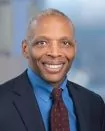Please click here to listen to the audio.
Transcript:
I'm Colleen Conry, Partner in Ropes & Gray's Government Enforcement Practice Group. Before I came to Ropes I was a Senior Litigation Counsel in the Fraud Section at the Department of Justice here in D.C. I'm joined here today by Marc Berger and Jeremiah Williams. Marc is a fellow partner in the firm's Government Enforcement Practice Group and the former Chief for the Securities and Commodities Fraud Task Force for the United States Attorney's Office for the Southern District of New York. Jeremiah joined the firm's Business and Securities Litigation Group from the SEC here in D.C. where he served as a senior counsel in the SEC's Asset Management Unit until May of 2016.
Today's podcast is a part of a series of Capital Insights podcasts we're hosting to examine the issues and potential regulatory and enforcement changes coming out of Washington D.C. as we transition to a new administration.
In the podcast we're going to discuss what securities enforcement might look like under a Trump administration.
So Marc, let's start by talking about DOJ's agenda for the next four years. Jeff Sessions is known as a probusiness conservative. Do you anticipate a Sessions-led DOJ would take a more lenient approach to corporate criminal prosecutions, particularly in the realm of securities fraud enforcement?
Marc: So in a word no. But let me take a step back and start out by saying that the Department of Justice is, of course, a large organization comprised of many individual U.S. Attorney's offices as well as Main Justice criminal and civil divisions in Washington D.C. And while the Attorney General, of course, sits on top of all these components, the line prosecutors making the day-to-day decisions and their supervisors who provide certain approvals and even the U.S. Attorneys' themselves, they're all fairly insulated from any potential shift in approach at the top, and they're the ones driving the investigations and often the new initiatives.
But as to Sessions, he's taken a tough line on white-collar crime. He is someone who, while serving on the Senate Judiciary Committee, made certain comparisons between corporate defendants and drug case defendants. He co-sponsored a bill that if enacted would have authorized the SEC to hire 100 additional enforcement staff members specifically dedicated to prosecuting securities and other financial fraud. Sessions started his career as a federal prosecutor in Alabama where, of course, he ultimately became U.S. Attorney and supervised a number of Savings and Loan fraud cases, which Sessions later extolled as the catalyst for "better behavior in banking." And during a 2002 Senate Judiciary Committee hearing, Sessions highlighted the facts that certain individuals went to jail for Savings and Loan fraud and that their families were publicly embarrassed as proof that "harsh sentencing does deter."
Colleen: Well that's interesting Marc. So what else can we take away from Sessions' four terms in the Senate?
Marc: Well I think Sessions' statements during the 2010 Senate Judiciary Committee confirmation hearings for former Deputy Attorney General James Cole are particularly telling here. There, he clearly demonstrated a disinclination to consider potential collateral consequences of a criminal conviction for a corporation. While discussing the Arthur Andersen prosecution, Sessions said, "if they violated a law, you charge them." And similarly in discussions BP's role in the Gulf oil spill, Sessions stated that BP should "be held liable for their responsibilities to the extent of their existence." And Sessions went on to say that BP is "not too big to fail." So I think we have a few data points that hint that Sessions may be inclined to push for prosecutions of large corporations should they engage in criminal activity despite the collateral consequences that these prosecutions inherently carry. And these statements also could, I suppose, suggest that Mr. Sessions may be a proponent of harsher criminal sanctions for corporations due to their deterrent effect. That he may be less likely to use non-prosecution agreements (NPAs), or deferred prosecution agreements and that he may be more willing to require guilty pleas from corporations. And finally, one last point here, I think he'll likely support the DOJ's well publicized renewed efforts to focus on individual executives, recently outlined in a policy memo by Deputy Attorney General Sally Yates.
Colleen: So Marc, let's talk about a development in the presidential transition that probably hits a little close to home for you coming out of the Southern District. And that is President Elect Trump's request that Preet Bharara stay on as the U.S. Attorney in the Southern District of New York which Mr. Bharara accepted. What does this foreshadow?
Marc: Well Preet has a reputation for being a fair but tough prosecutor - someone who is independent and clearly not afraid to take on powerful figures. And I think we can and should expect that trend to persist. According to Preet, when he left the meeting with President Elect Trump, Trump asked him to continue to do the work that he's been doing "independently, without fear or favor." And that's exactly what Preet has done since 2009 when he returned as the U.S. Attorney.
Colleen: Marc, a fair amount of Bharara's early tenure in the securities enforcement space has been dedicated to the pursuit of insider trading prosecutions. What do you think we'll see on that issue going forward?
Marc: We very well may see an upward tick in insider trading prosecutions during the Trump administration. Not just in the Southern District but across the country, both criminally and civilly. And this is a result of the Supreme Court's recent decision in the Salman case which restored a lower bar to one of the elements of an insider trading claim in a tipper or tippee insider trading case. And so, it is now easier in some respects for enforcement folks to police illegal insider trading than it had been a year or so ago. In fact, the day the Supreme Court case came down, Preet actually issued a statement saying that it is a "victory for fair markets and those who believe the system should not be rigged."
Colleen: Bharara is also known for dusting off a previously underutilized federal law known as FIRREA and that's the Financial Institutions Reform, Recovery and Enforcement Act of 1989. And he's used that to prosecute financial fraud that would otherwise be time barred under the traditional mail and wire fraud statutes. Preet has also used FIRREA to extract significant settlements from Wall Street, particularly the mortgage lenders responsible for the 2008 financial crisis. Marc do you think we'll see continued aggressive use of FIRREA by Preet's office?
Marc: It's tough to say. Preet certainly has an incentive to continue bringing cases under FIRREA. Earlier this month the jury returned a $93 million verdict against Allied Home Mortgage Capital, a case which the Southern District filed back in 2011. After the verdict the U.S. Attorney signaled satisfaction with the decision saying that a jury held Allied and it's President and CEO "responsible and made them pay for losses the United States suffered on loans that would never have been insured by HUD absent their lies." Now that said, the DOJ's use of FIRREA was dealt a significant blow this year when the Second Circuit threw out a jury's finding that Bank of America was liable for originating and securitizing shoddy mortgage loans, avoiding a $1.27 billion penalty in the process. According to the Second Circuit, the government failed to prove that Countrywide intended any deception imposing, what some say, is a heightened intent requirement. And so the DOJ may have less leverage to extract huge penalties and fines in settlement talks and may very well need to be more cautious in bringing these cases to trial.
Colleen: So finally Marc what, if anything, do you foresee about how Preet will approach alleged violations of sanctions under the Trump administration?
Marc: Well if Preet has his way I believe, consistent with his reputation in prior cases his office has brought in this space, he'll continue to be quite aggressive. Over the last few years beginning in 2013, the Southern District of New York has entered into settlements with a number of large financial institutions for sanctions violations. And as for individual prosecutions, earlier this year U.S. Attorney Bharara announced the indictment of Turkish businessman Reza Zarrab and two co-conspirators for engaging in hundreds of millions of dollars worth of transactions on behalf of the government of Iran and other Iranian entities which were barred by U.S. sanctions as well as money laundering and bank fraud charges against those defendants. Bharara has spoken out strongly against Zarrab and his co-conspirators, stating that their alleged actions, in addition to being unlawful, "undermined the U.S. sanctions regime imposed against Iran." And so, again, I think it's safe to say that Preet takes these cases extremely seriously and will continue to vigorously pursue them.
Colleen: Thank you, Marc. So let's switch gears now to the SEC. Jeremiah, while Preet Bharara has indicated that he will stay on as the U.S. Attorney in the Southern District under Trump, Mary Jo White, the head of the SEC, announced that she will be stepping down two years early. What do you think this means for the future of the SEC under Trump?
Jeremiah: Mr. Trump will be able to remodel the regulatory landscape for Wall Street. Not only does Mr. Trump get to replace Chair White, but he has the opportunity to fill two other openings at the SEC, two vacancies on the Federal Reserve Board and vacancies at the Commodity Futures Trading Commission. Additionally, the new SEC chair will be able to bring in a new head of the enforcement division. With respect to the SEC, it is important to distinguish between the regulatory side and enforcement side. Mr. Trump's campaign rhetoric focused mostly on the regulatory issues, specifically Dodd-Frank. He promised to overhaul the entire regulatory code and "dismantle Dodd-Frank." And post-election, Mr. Trump's website announced that "the Financial Services Policy Implementation team will be working to dismantle the Dodd-Frank Act and replace it with new policies to encourage economic growth and job creation."
Mr. Trump has had less to say about enforcement but a few things seem clear. In general, we do not expect dramatic changes on the enforcement side. It seems likely that certain core aspects of the enforcement program will not change. The anticipated revisions to Dodd-Frank are unlikely to significantly impact the strength or pace of the enforcement program. It is important that regulated entities continue to maintain the strong compliance programs and cultures that they have developed in response to the aggressive enforcement environment of the last several years.
There are three reasons why we believe that enforcement is unlikely to be changed dramatically. The first is people. There will be turnover at the top but the people on the staff who actually push cases forward will remain the same. Second is process. SEC cases take years to develop so even if there are some changes in priorities, it will take some time for these to manifest themselves. Third is structure. There are a number of innovations in the enforcement division that have made the origination more efficient and effective and will likely remain in effect. In particular, in 2010 there were five specialized units created that allow staff across the country to quickly share information and manage enforcement priorities. This will likely remain an important force within enforcement.
However, some changes do seem likely. First, we may see the elimination of the SEC's power to bring cases in administrative hearings. Under Dodd-Frank, the SEC possesses the authority to obtain penalties against defendants in administrative hearings which are much quicker than bringing cases in federal court. Previously a bill called for the rollback of this practice, as well as a number of other important Dodd-Frank provisions. This bill failed to pass Congress, but something similar seems much more likely to pass the new Congress. Additionally, a recent court ruling makes some changes with administrative hearings more likely. On December 27, the U.S. Court of Appeals for the 10th Circuit declared that the SEC's use of administrative law judges is unconstitutional. Second, the Commission may turn away from the "broken windows" approach of Mary Jo White which led to many enforcement actions for violations of highly technical rules. We are likely to see relatively more focus on more substantive issues arising under the various anti-fraud provisions. Third, admissions of wrongdoing, which have increased under another new initiative for Mary Jo White, may decrease in number.
Colleen: So, Jeremiah, Trump recently nominated Jay Clayton to chair the SEC. Mr. Clayton is a mergers and acquisitions attorney with some experience in enforcement matters. What does his appointment signal to you?
Jeremiah: Jay Clayton is an unconventional pick in that he would be the first Chair in 40 years without any prior government experience. He is primarily a deal lawyer, although he has some exposure to enforcement issues. In 2011, he led an effort arguing that the FCPA is costly to companies and potentially counterproductive. However, I wouldn't read too much into this. As I discussed before, there are institutional forces that make a softening of enforcement efforts less likely. Given Mr. Clayton's apparent focus on non-enforcement areas, such as capital formation, his pick for Director of Enforcement will be particularly important.
Mr. Clayton may try to focus more on individual liability rather than corporate liability. This was a big issue for former Commissioner Atkins, who is on the Trump transition team and presumably had some input in the decision to nominate Clayton. But this really wouldn't mark a departure from the Commission's current practice. There have been several high-profile cases against chief compliance officers, and Stein, who will remain as a Commissioner, also pushes hard for individual liability.
Colleen: Thank you Marc and Jeremiah for your insights and thank you all for listening. Please visit our newly launched Capital Insights page at www.ropesgray.com for additional news and analysis about noteworthy enforcement and regulatory issues.
The content of this article is intended to provide a general guide to the subject matter. Specialist advice should be sought about your specific circumstances.



